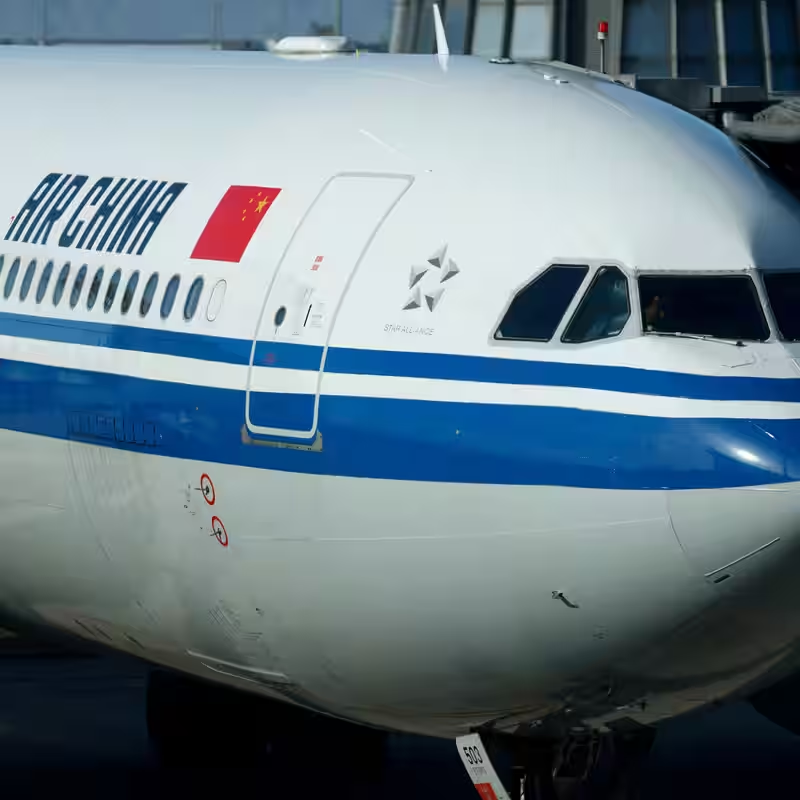Table of Contents
- Mid-Air Fire Triggers Emergency Landing
- Why Lithium Batteries Are a Growing Air Travel Hazard
- How Airlines and Regulators Are Responding
- What Travelers Need to Know
- China’s Recent Battery Restrictions—and Their Limits
- Sources
Lithium Battery Fire Forces Air China Emergency Landing
A routine Air China flight turned into a high-stakes emergency on Saturday, October 18, 2025, when a lithium battery spontaneously combusted in a passenger’s carry-on bag stored in an overhead bin. The incident forced the aircraft—en route from Hangzhou to Incheon, South Korea—to make an unscheduled landing at Shanghai Pudong International Airport.
Thankfully, no injuries were reported. Crew members acted swiftly to contain the fire, which sent thick smoke billowing through the cabin, as seen in viral videos circulating on social media. The airline confirmed the source was a lithium battery, though it remains unclear whether it was inside a device or a spare power bank.
Why Lithium Batteries Are a Growing Air Travel Hazard
Lithium-ion batteries power everything from smartphones to laptops and e-cigarettes—but their energy density also makes them prone to thermal runaway, a chain reaction that can cause fires even without external triggers.
According to the U.S. Federal Aviation Administration (FAA), there have already been 38 confirmed incidents involving lithium batteries on flights in 2025 alone. In 2024, that number reached 89. These aren’t just minor malfunctions: many result in smoke, extreme heat, or open flames in confined cabin spaces.
“A single damaged or defective battery can ignite in seconds,” said Dr. Lena Torres, an aviation safety expert at MIT. “And in an aircraft, you don’t have the luxury of time or space to manage it.”
How Airlines and Regulators Are Responding
Governments worldwide have tightened rules in recent years:
- United States: Spare lithium batteries must be carried in carry-on luggage only and cannot be placed in checked bags unless devices are fully powered off.
- European Union: Requires airlines to train cabin crews on battery fire protocols and carry specialized fire containment bags.
- China: Implemented a June 2025 ban on unmarked portable batteries lacking Chinese safety certification for domestic flights.
Despite these measures, enforcement remains inconsistent—and loopholes persist.
What Travelers Need to Know
To reduce risk, passengers should:
- Never pack loose lithium batteries in checked luggage.
- Keep power banks and spare batteries in protective cases.
- Avoid using damaged or swollen batteries.
- Notify crew immediately if you see smoke or smell burning electronics.
“Most people don’t realize their phone charger could become a fire hazard,” said Captain Rajiv Mehta, a retired commercial pilot. “Awareness is half the battle.”
China’s New Rules—and Their Limits
China’s recent battery regulations target uncertified portable power banks, but—as Saturday’s incident shows—they don’t cover all scenarios. Air China confirmed the flaming battery was a removable type, which falls outside the scope of the new ban.
This gap highlights a broader challenge: as consumer tech evolves faster than regulation, aviation safety systems struggle to keep pace.
For now, the Air China flight has resumed normal operations after inspection, but the incident serves as a stark reminder: even the most routine journey can turn dangerous in seconds.




